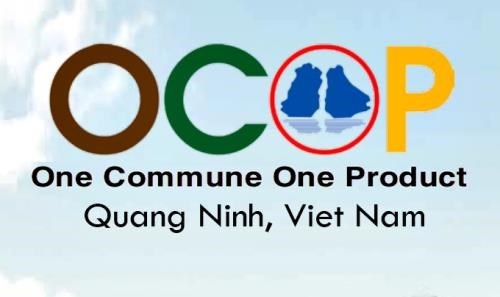Under Decision No.490/QD-TTg signed recently by Deputy Prime Minister and head of the Steering Committee for National Target Programs Vuong Dinh Hue on approving the program, the scheme is part of measures to promote the implementation of the National Target Program on New Rural Building.
    |
 |
|
Photo for illustration: halongtourism.com.vn |
It will focus on developing high potential agricultural and non-agricultural products, and services in each locality based on the value chain, which will be carried out by private and collective economic sectors.
OCOP products and services should be locally sourced or localized, especially regional specialties. They will be rated in five levels, with the 5-star is the best, meeting international quality standards.
Groups of goods and services defined in the program include food (fresh and processed farm produce); beverages (alcoholic and non-alcoholic drinking); medicinal herbs (products made from herbal plants); fabric and textiles (products made from cotton and yarn); souvenirs - furniture - decorations (products made from wood, fiber, rattan, metal and ceramics); and rural tourism services and sales (services for sightseeing, tourism, study, research).
The State will play the role of promulgating the legal frameworks and policies to implement the program; managing the quality of products; supporting the training, application of technologies, trademark building, trade promotion, product introduction, and technical and credit assistance provision.
The overall objective of the program is to develop forms of production organization and business (with the priority will be given to developing cooperatives and small and medium-sized enterprises (SMEs), towards producing traditional products and developing services with high competitiveness in the domestic and international markets, thus promoting rural economy and the national agriculture industrialization and modernization.
It is also hoped to help accelerate the shift of rural labor structure, protect the environment, and preserve the traditional values in rural areas.
A comprehensive management system will be built for coordinating the program at all levels, while a set of criteria to value and rank products; and specific policies related to the proggra will be devised.
By 2020, the program will standardize at least 50 percent of existing products or about 2,400 products.
It will also consolidate and improve production in the form of linking production households with cooperatives and enterprises; develop between 8-10 models of tourism culture villages; and establish about 500 new SMEs, and cooperatives joining the OCOP program.
The program will be implemented at an estimated cost of VND 45 trillion, which is mainly mobilized from the society such as enterprises, cooperatives, production households as well as loans from credit institutions, investment funds, SMEs development funds, funds for developing cooperatives; and international organizations’ funding.
Source: VNA